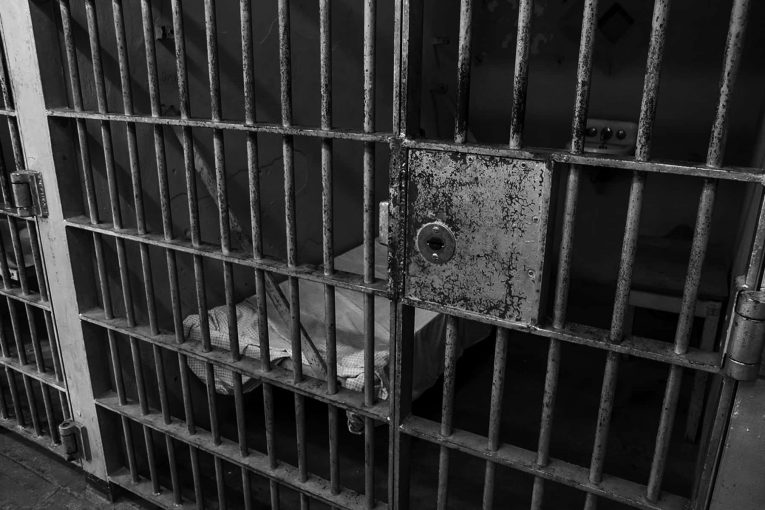

By Robert J Hansen
Sacramento, CA – There were several laws passed by the state legislature in 2022 impacting criminal justice reform, which took effect as of January 1.
Laws relating to what can happen after arrest, changes in the prison, what prosecutors can use in court and a couple that are no longer illegal.
AFTER ARREST
AB 2167: Alternatives to incarceration
AB 2167 requires courts to consider alternatives to incarceration, including, collaborative justice court programs, diversion, restorative justice and probation.
Also, the bill says it is the intent of the Legislature that the disposition of any  criminal case use the least restrictive means available.
criminal case use the least restrictive means available.
According to the legislation, California’s overreliance on incarceration has failed to improve public safety while disproportionately harming vulnerable and marginalized communities.
California can safely reduce the number of people behind bars by making greater use of alternatives to incarceration, which often lead to better outcomes than incarceration, including reduced rearrest rates, better economic outcomes, and reduced racial disparities, according to the legislation.
AB 2294: Diversion for repeat retail theft crimes
Existing law requires law enforcement to release a person who has been arrested for a misdemeanor after securing that person’s promise to appear, as specified, unless certain conditions are met for non-release.
Until January 1, 2026, AB2294 says that when someone is arrested for retail theft and the person has been cited, arrested, or convicted for misdemeanor or felony theft from a store in the previous 6 months and there is probable cause to believe that the person arrested is guilty of committing organized retail theft, that is now a reason for non-release by law enforcement.
PRISONS
SB 1139: Prisons and visitations
SB 1139 says that when an inmate has been admitted to the hospital for a serious or critical medical condition, the CDCR is required to allow family and friends outside of a facility to initiate a telephone call with an incarcerated person.
CDCR is also required to inform a family member or designated person when an inmate has become critically ill or dies while they were hospitalized.
SB 1008: Free phone calls for inmates
SB 1007 requires state prison, or a state, county or city jail or detention center provide telephone services to incarcerated persons free of charge.
The bill also prohibits counties, cities and state agencies from receiving revenue for telephone and communication services to persons in custody.
COURTROOMS
AB 2778: Race-blind charging
On January 1, 2024, AB 2778 requires the Department of Justice to develop and publish “Race-Blind Charging” guidelines whereby all prosecuting agencies implement a process to review a case for charging based on information, from which all means of identifying the race of the suspect, victim, or witness have been removed or redacted.
The bill, authored by Assemblymember Kevin McCarty, was modeled after Jeff Reisig, Yolo County District Attorney’s Race-Blind Charging program in 2021.
The bill would require prosecution agencies to independently develop and execute a process to review and to redact information based on general criteria beginning January 1, 2025.
AB 2799: Prosecutors no longer able to use rap lyrics as evidence
The bill requires courts to balance the probative value of a creative expression against the substantial danger of undue prejudice and first to consider that the probative value of the creative expression for its literal truth is minimal unless that expression meets specified conditions.
Essentially, AB 2799 provides a framework for courts to ensure that the use of an accused person’s creative expression will not be used against the defendant nor as character or propensity evidence.
SB 836: Defense attorneys barred from disclosing immigration status in court
The previous law, repealed on January 1, 2022, prohibited the disclosure of a person’s immigration status in open court unless that party requested an in camera hearing and the presiding judge determined that the evidence was admissible.
SB 836 re-enacts those repealed provisions.
AB 2169: Human trafficking
Prosecutors must show clear and convincing evidence that an arrest or conviction was the direct result of being a victim of human trafficking, intimate partner violence or sexual violence, demonstrating that the person lacked intent to commit the offense.
NO LONGER ILLEGAL
SB 357: Loitering for prostitution no longer illegal
SB 357 repeals provisions that prohibited loitering with the intent to commit prostitution and other conforming changes.
The bill allows a person convicted of a violation of loitering with the intent to commit prostitution to petition the court for the dismissal and resentencing, if applicable.
AB 2147: Jaywalking
This bill makes jaywalking legal.
AB 2147 prohibits police from stopping a pedestrian for specified traffic infractions (jaywalking) unless a reasonably careful person would realize there is an immediate danger of collision with a moving vehicle.

